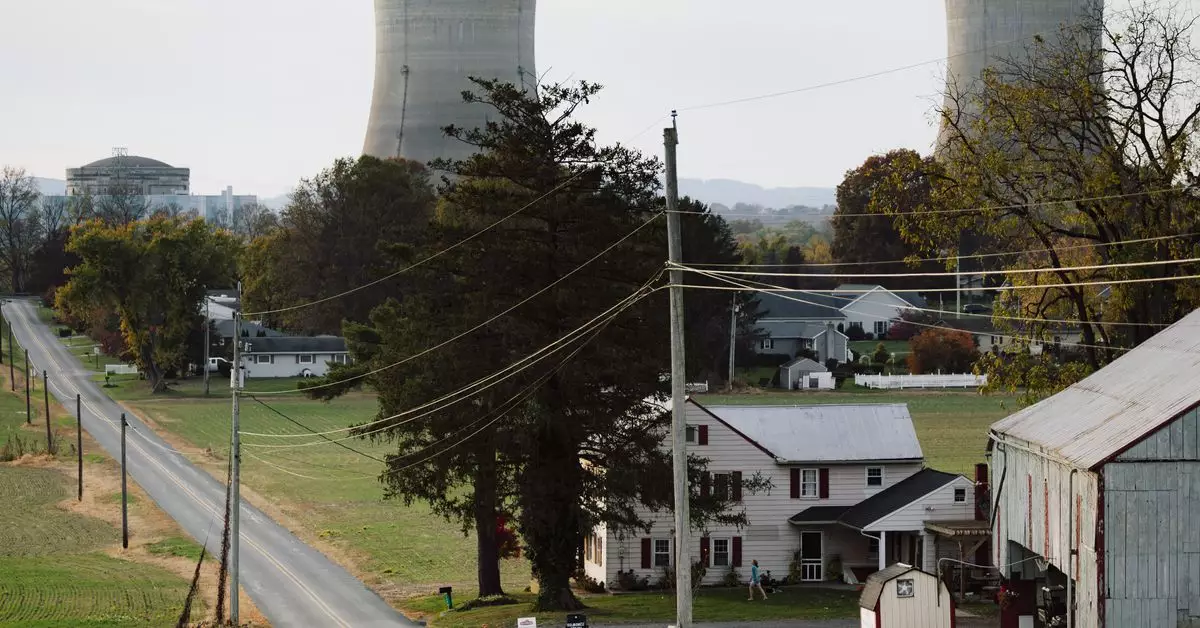In recent years, the landscape of energy procurement has undergone a significant transformation, particularly in the realm of nuclear energy. The General Services Administration (GSA), which oversees federal properties and manages government services, has made headlines with its unprecedented nuclear energy contract valued at $840 million over the next decade. This contract aims to deliver an impressive 10 million megawatt-hours of electricity, sufficient to power over one million homes annually. The GSA has awarded this contract to Constellation, a powerhouse in the nuclear energy sector, highlighting a notable shift in governmental energy strategy.
The timing of this announcement cannot be overlooked. It follows a series of substantial nuclear energy agreements made by prominent tech companies, who are increasingly turning to nuclear energy to meet the surging electricity needs of various operations, including data centers and artificial intelligence facilities. The GSA’s move reflects a broader trend as the federal government, recognized as the nation’s largest energy consumer, aligns itself with tech giants in seeking cleaner and more reliable energy sources. As the demand for electricity soars, primarily driven by technological advancements, the GSA’s contract signifies a pivotal moment for the nuclear energy industry.
Joe Dominguez, the president and CEO of Constellation, underscored the significance of this development. He lamented the exclusion of nuclear energy from many sustainable energy initiatives in the past but expressed enthusiasm for the current shift in perspective. The partnership between the federal government and entities like Microsoft signifies a renewed commitment to investing in nuclear energy. Nuclear power accounts for a considerable proportion of Constellation’s output, which also includes hydro, wind, and solar energy. However, the emphasis remains on nuclear as a cornerstone of the company’s strategy to achieve 100% carbon-free electricity by 2040.
Despite this ambitious goal, important questions remain regarding the specific energy mix from other sources contained within the contract. This uncertainty may pose challenges, especially considering the growing emphasis on accountability and transparency in energy procurement processes.
Financial Stability in Uncertain Times
The GSA’s landmark purchase is not merely a strategic move toward embracing nuclear energy; it is also designed to provide budgetary stability in an increasingly unpredictable energy market. In the wake of rising electricity prices and growing demand from tech companies, this contract assures federal agencies a steady supply of energy at stable, pre-determined costs for the next decade. This model could serve as a blueprint for future energy contracts across various sectors.
GSA Administrator Robin Carnahan heralded this procurement as a historical milestone, asserting its potential to anchor a reliable energy supply while fostering growth within the domestic nuclear industry. By stabilizing electricity costs for federal agencies, the GSA effectively mitigates the risks associated with fluctuating markets, thereby ensuring effective resource management.
This contract extends beyond the GSA, impacting 13 other federal agencies, including the Veterans Affairs and Transportation departments. Such a broad application highlights the critical role of nuclear energy in providing reliable, clean energy across various government sectors. As the Federal Bureau of Prisons, the National Park Service, and other organizations join this initiative, the collaborative approach demonstrates a united front toward embracing nuclear as a viable energy source.
Moreover, the GSA’s decision aligns with the Biden administration’s broader agenda of reducing reliance on fossil fuels and promoting renewable energy solutions. This strategy further reinforces the federal commitment to sustainable energy practices, particularly in the wake of escalating concerns surrounding climate change.
The American pivot towards nuclear energy is not unique. Many nations are reassessing their energy strategies, focusing on reducing their carbon footprints while meeting growing energy demands. As countries worldwide work to balance energy needs with environmental responsibilities, the GSA’s contract may inspire similar initiatives in other regions.
Additionally, the recent surge in nuclear energy discourse highlights a changing narrative around this energy source. Having long been viewed with skepticism, nuclear power is now gaining traction as a clean alternative. Events such as the proposed reopening of the Three Mile Island reactor highlight the evolving perceptions of nuclear energy following its historical challenges.
The GSA’s bold contract with Constellation represents a significant step forward in the quest for sustainable, reliable energy solutions. As private companies and government entities join forces, the hope is that nuclear energy will emerge as a key player in the clean energy landscape, positioning the United States as a leader in embracing a new era of energy sustainability.


Leave a Reply
You must be logged in to post a comment.